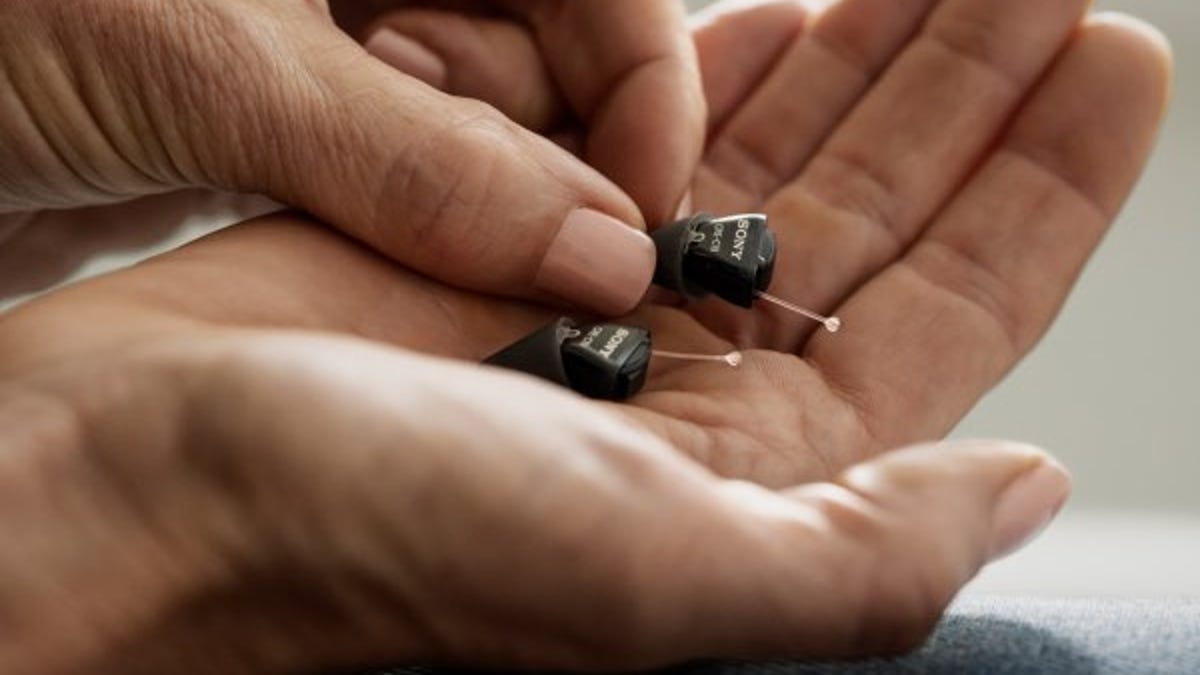
Last October, the US Food and Drug Administration loosened rules for how hearing aids may be sold, making them available at stores and pharmacies across the US without the need for a prescription or professional fitting by a hearing health professional.
Over-the-counter (OTC) hearing aids are meant for adults with mild or moderate hearing loss — children, people with severe hearing loss or reason to believe another health condition is affecting their hearing still need to be seen by a health care professional to find the best fit. And before anyone starts their hunt for an OTC hearing aid, there are special considerations you should make and things to know before you buy a pair of hearing aids at the store.
If you’re in a position where you’re considering a hearing aid (maybe you have a hard time hearing people talk in a noisy room or you’re blasting your TV volume) you may be wondering how they’ll stack up against the previous gen prescription models. While buying OTC could potentially save you a few thousand dollars, prescription hearing aids may come equipped with perks like Bluetooth streaming, as Soundly, a hearing aid comparison website, points out. (You need a professional fitting to get the newest Phonak hearing aid, for example.) Add in the fact that OTC devices only hit the shelves six months ago, and it makes a head-to-head comparison difficult.
Still, there is promising research coming out about the effectiveness of OTC hearing aids. Here’s what we know now.
How OTC hearing aids compare to professionally fitted devices
OTC hearing aids are a pretty new idea — they’ve been on the market for less than a year. So research comparing hearing aids fitted by an audiologist to a self-fitted device you picked up at Best Buy will need time to build.
A study published last month in the JAMA Otolaryngology-Head & Neck Surgery was the first of its kind to compare OTC hearing aids to prescription hearing aids. In a randomized clinical trial, data was collected from 64 adults who were assigned either a self-fitted hearing aid (the Lexie Lumen), and the necessary steps to set it up at home, or the same device by Lexie Hearing but fitted by an audiologist. At the end of six weeks, there were no differences in the effectiveness of the hearing aid between the two groups, suggesting that many adults will be able to get the same benefit from common hearing aids like the Lexie Lumen regardless of whether they fit it themselves or have it done professionally at the clinic.
The biggest caveat to this study was that it compared the same hearing aid. Prescription hearing aids are different devices than OTC hearing aids, though the latter may begin to catch up as the market changes and companies start trying to out-compete each other.
Are OTC and prescription hearing aids regulated differently?
Both types of hearing aids are medical devices regulated by the FDA. This means that OTC hearing aids you can buy at the store are different from personal sound amplification products you can also get over the counter (people may use PSAPs for hunting, for example).
Many people will wait several years after they first notice signs of hearing loss to get a hearing aid, due to cost barriers, the belief a hearing aid won’t be worth it and the stigma around wearing them. Time will tell how OTC hearing aids truly shape up, but their accessibility and often-sleek design will hopefully get them in the hands of people who need them.
